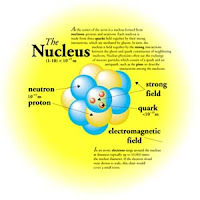Solar cell: a device that generates an electric current from sunlight.
biomass conversion: getting energy from plant and animal materials by changing them into high-quality fuels.
nuclear fission: the splitting of nucleus with a large mass into two nuclei with smaller masses.
chain reaction: a reaction that is kept going by products of the reaction.
nuclear fusion: the merging of nuclei with smaller masses into a nucleos with a larger mass.
hydroelectricity: the use of flowing water to generate electricity.
thermal pollution: the excess heating of the enviroment.
Thermal expansion: the expansion of matter when its temperature is raised.
pressure: the force on each unit of area of a surface.
melting: the change of a solid into liquid.
vaporization: the change ofliquid to gas as molecules break free from each other.
Condensation: the change of gas into a liquid as molecules attract each other.
freezing: the change of a liquid into a solid.
boiling: the formationof bubbles of vapor that escape from a liquid that is being heated.
evaporation: the vaporization of molecules from the surface of a liquid.
Kinetic energy: the energy of a moving object.
Pottential energy: energy stored in an object or material.
Temperature: the average kinetic energy of the molecules in a material.
Heat: energy that flows between pbjects that have different temperatures.
Radiation: the transfer of energy by electromagnetic waves.
Conduction: the transfer of energy byeby direct contact of molecules.
Convection: the transfer of energyby the flow of aa liquid or gas.
Insulation: prevents heat from flowingin or out of a material.
Compound: a chemical combination of two or more elements.
Chemical bond: a link that atoms or electrically charged particles can form with each other.
Chemical formula: a way of using letters and numbers to show how much of each element is in a substance.
Ion: an electrically charged particle with unequal numbers of prtons and electrons.
Molecule: a group of bonded atoms that acts like a single patricle.
Chemical property: a way of describing how a substance changes chemically with other substances.
Exothermic: a reaction that give off heat.
Endothermic: a reaction that absorbs heat.
Element: a substance that cannot be broken down any further into anything simpler.
Atom: the smallest particle of an element that has the same chemical properties as the elements.
Nucleus: an atom`s dense center, where most of it mass is.
Electron: a negatively charged particle that moves around an atom`s nucleos.
Proton: a positively charged particle inside an atom`s nucleus.
Neutron: a particle with no charge inside an atom`s nucleos.
Atomic Number: the number of protons in an atom.
Metal. any of a group of elements that conduct heat and electricity, is shiny and bendable.






































